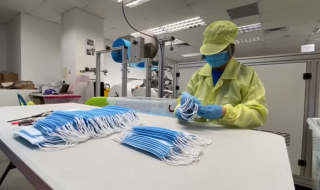
The People at Work 2023 Study by the ADP Research Institute highlights the attitudes, aspirations, wants, and needs of workers globally, including those in Singapore. Covering over 32,000 workers across 17 countries, this study stands as one of the largest surveys worldwide.
One crucial finding emerges clearly for Singaporean workers: flexible working arrangements are non-negotiable. A third of Singapore’s workforce anticipates the transition to a four-day work week within the next five years. Remarkably, 21% of respondents in Singapore report that their employers are already implementing this shift to foster positive mental health at work, marking the highest rate across the APAC region.
“The four-day work week is gaining traction due to its potential benefits, such as enhanced work-life balance, heightened productivity, and reduced burnout,” stated Yvonne Teo, Vice President of HR APAC at ADP.
In a four-day work week setup, employees tackle the same workload within a compressed timeframe, aiming to boost productivity. The allure of a prolonged weekend serves as motivation, prompting employees to manage their time more efficiently and curb procrastination. This model is currently under serious consideration by European nations like Iceland, New Zealand, and Spain.
FLEXIBILITY IS CRUCIAL
“Flexibility is not merely a perk but an essential expectation,” emphasized Teo. “Our research underscores that Singaporean employees rank flexibility as the third most crucial factor in a job, following salary and job security. Employers must offer flexible work arrangements to attract and retain top talent.”
According to the report, employees anticipate hybrid work models (34%) and full autonomy over their hours (32%) to become prevalent within the next five years. Teo highlighted that effective implementation and communication are pivotal to ensuring that flexible work arrangements benefit all parties involved. She urged proactive employees to engage in open dialogues with managers to tailor solutions that suit everyone’s needs.
For employers, Teo suggested offering customized solutions to accommodate employees’ flexibility requirements through transparent communication. “Striking a balance that aligns with both the company’s objectives and the well-being of its workforce is crucial for fostering a positive and inclusive work environment,” she added.
Now, let’s uncover the advantages and disadvantages of this work setup.
Advantages include:

Image Credits: unsplash.com
1. Enhanced time management efficiency
2. Heightened productivity
3. Increased sales stemming
4. Improved employee retention
5. Decreased operational costs, including electricity bills
6. Mitigated employee burnout
7. Cultivation of a healthier work culture and environment
Disadvantages include:

Image Credits: unsplash.com
1. Potential compromise in output quality due to time constraints
2. Lower customer service satisfaction
3. Challenges in workforce management adaptation to a four-day work week
4. Elevated costs for revisions or rush services
5. Longer working hours to compensate for the shorter workweek
6. Incompatibility with certain industries
Despite these disadvantages, some local companies in Singapore have already embraced the four-day work week, including PropertyGuru, Mambu Singapore, Tenya Singapore, and Candlenut.
The question persists: will adopting a four-day work week enhance your company’s long-term growth and sustainability? While many companies turned to remote work during the pandemic, some chose to maintain this setup due to its long-term benefits. If you envision improved employee retention or heightened productivity aligning with your long-term objectives, transitioning to a four-day work week might prove ideal for your company.




